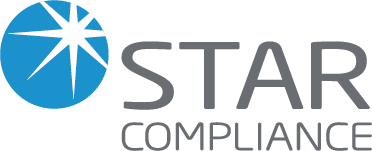What the FCA has to say about personal account dealing, and how StarCompliance can help.
From a regulatory perspective, personal account dealing (PAD) doesn't get the kind of attention that professional trading does. Instead, it’s rogue traders blowing billion dollar holes in their investment banks’ bottom lines that tend to make headlines. But market abuse is market abuse, and employees trading inappropriately on their own are not only in violation of the law but can also cause firms serious reputational damage. In this piece, we outline what the Financial Conduct Authority has to say about PAD, and what your firm can do about it.
What is PAD and why does it matter?
Key principles and requirements of PAD
Challenges to PAD compliance
What the FCA is seeing
What the FCA wants to see
How StarCompliance can help
What Is Personal Account Dealing and Why Does It Matter?
When an employee of a regulated firm engages in personal account dealing (PAD), also known as personal trading, they conduct trades on their own behalf instead of their clients’. These types of trades typically take place outside the scope of an employee’s professional role and directly benefit the employee.
Personal account dealing is not prohibited—in fact, it’s expected that investment bankers, personal trading managers, portfolio managers, and the like would take a personal interest in trading—but employees must adhere to strict rules to ensure that their behavior is not unlawful or potentially harmful to investors.
The UK’s Financial Conduct Authority (FCA) requires that investment firms establish appropriate and explicit rules regarding PAD that apply to what they deem “relevant persons”: All employees, their family members, friends, and close contacts, and any other personal connections whose participation in a trade could benefit the relevant person.
Employees risk violating PAD regulations when they:
- Trade on their firm’s shares when company policy prohibits it
- Proceed with a trade despite a conflict of interest with an employer or client
- Trade against their own professional recommendations
- Execute a trade based on material nonpublic information (MNPI), also known as front running
- Fail to report suspicious transactions or other activities
The first step in maintaining personal account dealing compliance is understanding the definitions, regulations, and risks involved. Not only do firms need to design and enforce comprehensive policies regarding PAD, but establishing a strong compliance culture is key to avoiding audits, investigations, or harsh penalties.
Key Elements of Personal Account Dealing Compliance
An effective compliance framework will help employees at all levels ensure integrity and transparency in all transactions, whether professional or personal. A strong PAD compliance infrastructure should include:
- Automated controls for identifying conflicts of interest or market abuse risks
- Comprehensive, up-to-date employee training
- Airtight security measures
- Regular assessments of employees’ understanding of compliance requirements
- The ability to conduct, review, and deliver real-time reports to the FCA, if necessary
- A leadership team that models transparency and accountability and advocates for strict compliance across all business activities
Many firms require that their employees complete certifications and attestations confirming that they understand personal account dealing requirements. These employees should regularly review and re-confirm their attestations to ensure ongoing compliance and present a united front against market abuse and conflicts of interest.
Challenges to Personal Account Dealing Compliance
In the course of conducting a personal trade, investment bankers and others run the risk of revealing confidential information that could jeopardize their company, their clients, or their livelihood. The potential to profit from inside information is tempting, and the risk is unfortunately inherent to the financial industry.
This is why it’s critical for employees to understand the boundaries and risks of personal account dealing noncompliance. The following is a non-comprehensive list of circumstances that could challenge a firm’s PAD compliance record:
- A lack of understanding or awareness of PAD regulations among employees
- An absence of employee certifications and attestations regarding PAD policies
- A lack of policies or appropriate employee training around PAD requirements
- Claiming ignorance as the basis for violating FCA regulations
- Employees failing to report suspicious activity or deliberately circumventing PAD requirements
The presence or occurrences of any of these factors can result in harsh penalties, including steep fines, criminal charges, dismissal from the industry, and irreparable reputational damage.
What The FCA Is Seeing
In 2019, the FCA carried out a study of personal account dealing activity at a handful of wholesale broker firms to assess the extent to which firms have incorporated recent changes in the market abuse regime. These changes can be found in the FCA's Conduct Of Business Sourcebook, sections 11.17 and 11.17A, both of which were updated in March 2018. In general, these sections lay out the regulator’s overall rules regarding PAD for employees and tied agents (“relevant persons”). Together, these two Conduct Of Business Sourcebook sections are meant to help firms construct a “control framework” to help minimize the risk that personal trading might:
- Conflict with the interests of firm clients
- Result in market abuse, including front running client orders
- Create a conflict between employees’ personal interests and their regulatory obligations to report suspicious transactions or orders
What the study found, however, was not what the FCA was hoping for—quite the opposite of the neat and tidy infrastructure as laid out earlier in this piece. It found that “the way in which firms control and monitor PAD varied substantially in terms
of practice and standard.” Further, while “many firms require employees to sign regular attestations confirming compliance with PAD rules...this [was] not always accompanied by proper arrangements by the firm itself to monitor and control PAD.”
Finally, the FCA wrote:
“We are generally concerned that firms in this sector have not identified or managed the PAD risks or conflicts of interest specific to their business model adequately. This may stem from a culture which has not sufficiently identified the potential for harm to clients or market integrity caused by inappropriate PAD practices. The absence of pre-approval for PAD trades, the low number of identified breaches and the absence of STOR [Suspicious Transaction Order Report] submission within the sample of firms may indicate a lack of effective monitoring and management of risks.”
What The FCA Wants To See
“To achieve effective compliance,” writes the FCA in their Market Watch issue 62, “firms need to understand the PAD risks posed by their business models, design clear policies and processes around those risks and develop a culture where adherence to their rules is the norm. When breaches of PAD policies do occur, firms need to investigate them and, where appropriate, take disciplinary action.”
Any arrangements made by the firm to effect the above directives must be designed to ensure that:
- Each relevant person covered is aware of firm restrictions on personal transactions.
- The firm is promptly informed of any personal transaction entered into by a relevant person, either by notification of that transaction or by other procedures enabling the firm to identify such transactions.
- In the case of outsourcing arrangements, the service provider to which the activity is outsourced maintains a record of personal transactions entered into by any relevant person and provides that information to the firm promptly upon request.
- Regardless of whether the notification procedure is handled internally or externally, a record is kept of the personal transaction notified to the firm or identified by it, including any authorization or prohibition in connection with such a transaction.
How StarCompliance Can Help
As an instrument for ensuring that “each relevant person…is aware of the restrictions on personal transactions,” STAR Personal Trading offers workflows that lets compliance teams see certifications through from start to finish. Centralized, electronic storage means never having to rifle through a filing cabinet in search of a cert when it's audit or investigation time.
But it’s pre-trade clearance that really addresses what the FCA seems to be asking for. With the STAR Platform, employees have an easy-to-access, easy-to-use application in which to enter their desired trade requests and—in most cases—get a fast ‘yes’ or ‘no’ answer as to whether or not they can proceed. This is possible because the STAR Platform allows financial firms to preset the precise kinds of investments their employees can and can’t trade in, down to the ticker.
Not having to wait on an answer means employees are less likely to bypass pre-clearance out of frustration or the fear of losing out on a good share price. Thus, with STAR, as long as employees use the system, the firm is without a doubt “informed promptly of any personal transaction entered into by a relevant person,” as the FCA requires. In addition, STAR’s audit and storage capabilities preserve “a record…of the personal transaction notified to the firm or identified by it, including any authorisation or prohibition in connection with such a transaction.”
The STAR Mobile app, which lets employees pre-clear trades from their mobile devices, means an even greater likelihood—due to sheer convenience—that information on employee trades will make it into a secure location that’s easy for compliance to monitor.
Personal account dealing may have recently come under the intense glare of the FCA regulatory spotlight, but with STAR Personal Trading and its comprehensive employee conflicts of interest monitoring capabilities, you can at least know that there really is an app for that.



